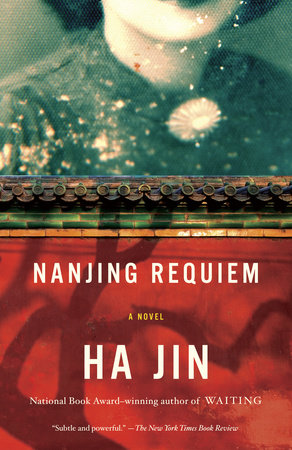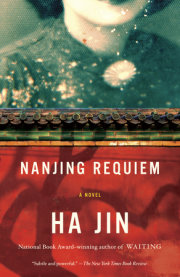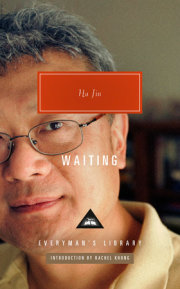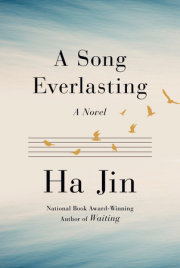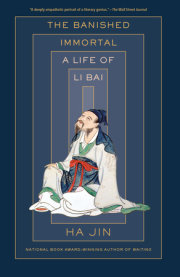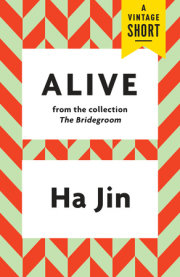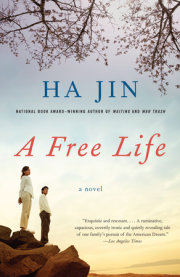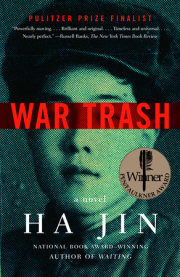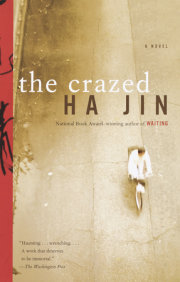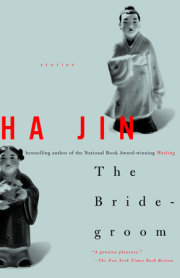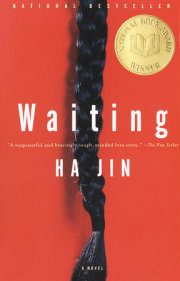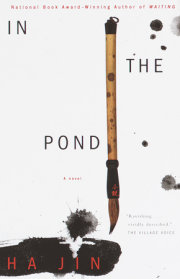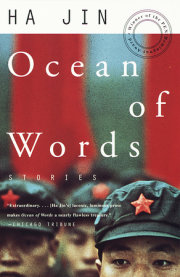Finally Ban began to talk. For a whole evening we sat in the dining room listening to the boy. He said, “That afternoon when Principal Vautrin told me to go tell Mr. Rabe about the random arrests in our camp, I ran to the Safety Zone Committee’s headquarters. As I was reaching that house, two Japanese soldiers stopped me, one pointing his bayonet at my tummy and the other sticking his gun against my back. They ripped off my Red Cross armband and hit me in the face with their fists. Then they took me away to White Cloud Shrine. There’s a pond inside the temple, and a lot of carp and bass lived in the water. The monks were all gone except for two old ones who’d been shot dead and dumped into a latrine. The Japanese wanted to catch the fish but didn’t have a net. An officer emptied his pistol into the pond but didn’t hit any fish. Then another one began throwing grenades into the water. In a flash big bass and carp surfaced, all knocked out and bellyup. The Japs poked us four Chinese with bayonets, and ordered us to undress and get into the water to bring out the fish. I couldn’t swim and was scared, but I had to jump into the pond. The water was freezing cold. Luckily, it was just waist-deep. We brought all the half-dead fish to the bank, and the Japanese smashed their heads with rifle butts, strung them through the gills with hemp ropes, and tied them to shoulder poles. Together we carried the fish to their billets. They were large fish, each weighing at least fifteen pounds.
“The soldiers had fried fish for dinner but didn’t give us anything to eat. Instead, they made us pick up horse droppings left by their cavalry with our bare hands. At dusk they took us to an ammo dump to load a truck. More Chinese were there working for them, eleven in total. We carried boxes of bullets onto the truck. When the loading was done, three fellows and I were ordered to go with the truck to Hsia Gwan. I was shocked to see so many houses burned down in that area. Lots of buildings were still burning, and the flames snapped and howled like a rushing wind. The electric poles along the way were blazing like huge torches. Only the Yangtze Hotel and a church stood undamaged. We stopped at a little slope and unloaded the truck. Near the riverbank a large crowd had gathered, more than a thousand people. Some of them were Chinese soldiers and some were civilians, including women and kids. A couple of men in the crowd raised white flags, and a white sheet was dangling from a tree. Beyond the people, three tanks with their turrets like large upside-down basins were standing on the embankment, their guns pointing at the crowd. Near us some Japanese soldiers were sitting around a battle flag planted in the ground, drinking rice wine from a large keg wrapped in straw matting. An officer came over and barked out some orders, but the soldiers at the heavy machine guns did nothing and just looked at one another. The officer got furious. He drew his sword and hit a soldier with the back of it. Thwack, thwack, thwack. Then his eyes fell on us Chinese coolies squatting close by. Raising his sword, he gave a loud cry, charged at the tallest one among us, and slashed off his head. Two squirts of blood shot into the air more than three feet high and the man fell over without a whimper. We all dropped to our knees and banged our heads on the ground, begging for mercy. I peed my pants.
“The soldiers at the machine guns were flabbergasted. Then one of the guns began firing, and the other two followed. In a flash the machine guns posted at other spots started shooting too. So did the tanks. The crowd was swirling around, crying and falling, but the people were trapped. Every bullet cut down several of them. In less than ten minutes they were all mowed down. Then groups of soldiers carrying fixed bayonets went over to finish off those who were still breathing. I was so horrified that I couldn’t stop trembling and crying. One fellow worker grabbed hold of my hair and shook me, saying, ‘Don’t make so much noise—it will draw attention.’ That stopped me.
“We returned with the truck to carry loot for the soldiers, mainly furniture. They didn’t keep all the stuff and threw lots of things into the big bonfire in front of their regimental headquarters. Over the fire were pigs and sheep and quarters of a buffalo skewed with long steel bars, and a couple of boiling cauldrons. The air was full of the smell of roasted meat. That night they locked us in a room and gave us each a ball of rice and a cup of water. The next two days they took us to the area east of the Central University to carry loot for them again. They stripped every house of its valuables and then torched it. One soldier carried a safe cracker, but most times they didn’t use the tool and just blew the safes open with hand grenades fixed to their bottoms, where the iron was thinner. They were very fond of wristwatches and jewelry—those were what they were after. One of them, a young fellow, even took a baby carriage. I couldn’t stop wondering what he’d do with that. He was too young to have kids.
“Afterward, they whisked six of us out farther east to Jurong Town, and we worked there for a whole day, moving artillery rounds and shell casings. In the evening they released us and said we could go home. Dog-tired, we slowly started trekking home in the dark. The first night we covered only ten miles. Along the way every pond and creek had dead bodies in it, humans and animals, and the water had changed color. When we were thirsty, we had no choice but to drink the foul water. Oh, I still can smell the stink of the decaying corpses. Some of them had eyeballs sticking two or three inches out of their faces, probably due to the gas built up inside them. We once came across a young woman’s body with one foot missing, dark blood still oozing out of the stump; on her other foot was a small purple shoe—she had bound feet. Some women were naked from the waist down, stabbed to death after the Japs had raped them. My legs would keep on shaking whenever we passed a pile of corpses.
“Again and again we were stopped by Japanese soldiers. Lucky for us, the officer who had released us wrote a note, so the guards along the way didn’t arrest us and allowed us to come back to Nanjing. One of the fellows, dehydrated from diarrhea, couldn’t walk anymore. We could do nothing but leave him behind on the roadside. He must be dead now. Not far from where we left him, we stumbled into a little boy, two or three years old, sitting at a deserted bus stop and crying from hunger pangs. I gave him a piece of pancake, but before he could eat it, four Japs came and prodded him with their boots. One of them pulled out his dick and started peeing into the boy’s mouth. The boy was crying louder and louder while the Japs cracked up. We dared not watch for long, so we moved on. I’m sure the other three Japs did the same to the boy. He’d be lucky if they didn’t kill him.
“Oh, human lives suddenly became worthless, dead bodies everywhere, some with their bellies cut open, intestines spilled out, and some half burned with gasoline. The Japs killed so many people that they polluted streams, ponds, and wells everywhere, and they themselves couldn’t find clean water to drink anymore. Even the rice they ate was reddish because they had to use bloody water to cook it. Once a Japanese messman gave us some bowls of rice, and after I ate it, I had the taste of blood in my mouth for hours. To tell the truth, I never thought I would make it back and see you folks again. Now my pulse still gallops in the middle of the night.”
While Ban was speaking, I jotted down what he said.
Copyright © 2011 by Ha Jin. All rights reserved. No part of this excerpt may be reproduced or reprinted without permission in writing from the publisher.

